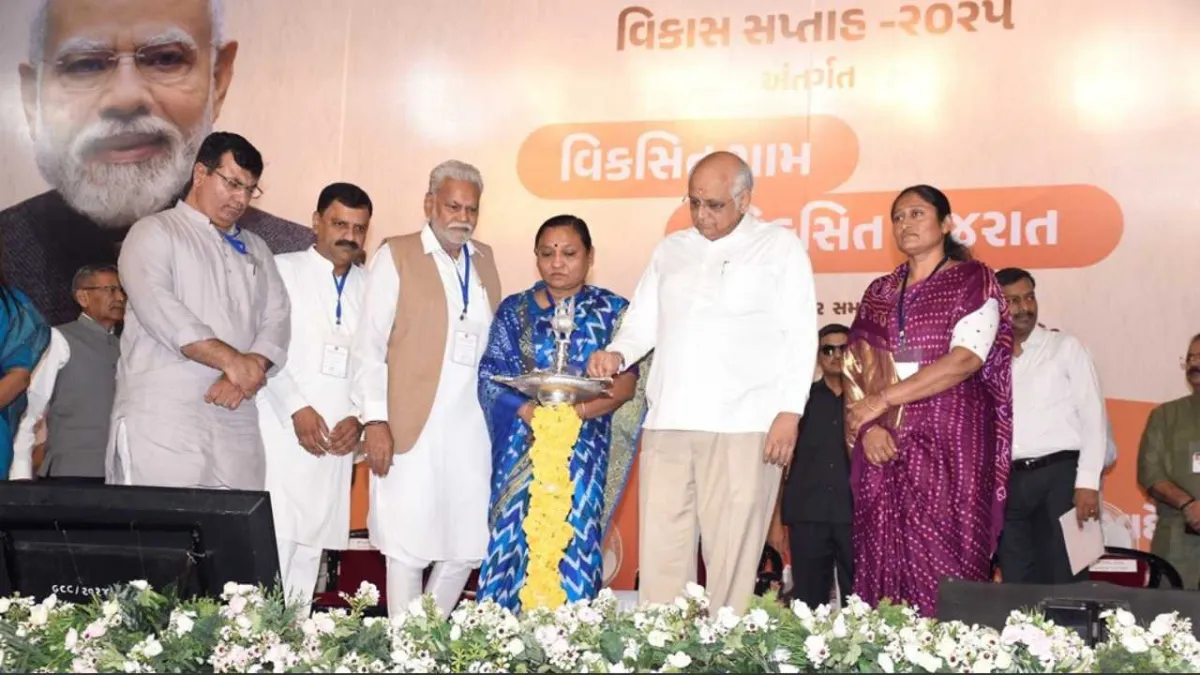Distribution of toll elimination grants to panchayats under the ‘Developed Village, Developed Gujarat’ program in Rajkot, honoring those who excelled in sanitation and women’s empowerment
Chief Minister distributed Rs 576.72 crore in toll elimination grants to village panchayats during the state-level program ‘Developed Village, Developed Gujarat’ held in Rajkot on Saturday. This amount was provided to the state’s village panchayats as a ‘Diwali gift’.
While Diwali will be celebrated on October 20 in the state, the announcement of grant distribution has already brought the ‘Diwali’ of development to rural areas. The program was organized at the Swaminarayan Temple auditorium on Kalavad Road in Rajkot, where the Chief Minister addressed panchayat representatives, officials, and women’s self-help groups.
During his address, the Chief Minister stated that the Prime Minister promoted ease of business by eliminating the toll system in the state. Now, to ensure village development doesn’t stall due to lack of toll revenue, the state government is providing crores of rupees in grants to panchayats. He mentioned that the Prime Minister has consistently increased Finance Commission grants for developing basic infrastructure like roads, electricity, and water in village panchayats.
The Chief Minister said that the Prime Minister’s decision to provide incentive grants to progressive panchayats has given new direction to rural development. This year, 761 village panchayats in the state have done remarkable work toward progress. The Chief Minister also noted increased youth participation in panchayat administration. Currently, 42 percent of sarpanches are between 21 and 40 years old, and many PhD-holding youth are also stepping forward for village service.
During the program, panchayats with best performance under the ‘Cleanliness is Service’ campaign and eight government institutions were honored. Additionally, four self-help groups doing excellent work were also recognized.
Speaking about the state government’s commitment to women’s empowerment, the Chief Minister said the government is providing all possible support to women’s self-help groups. Citing the example of the Drone Didi scheme, he said women are becoming economically empowered through this scheme. “Seeing that one Drone Didi is earning up to 14 lakh rupees annually brings great happiness.”
The Chief Minister stated that under the Prime Minister’s leadership, positive changes have occurred in both people’s mindset toward development works and the governance work culture. “Where earlier even the smallest work would take months to get approval, today municipal corporation councilors can easily complete works worth up to one crore rupees.” The program concluded with a resolve for rural development and self-reliance, where the Chief Minister called upon panchayats to maintain this pace of development.






